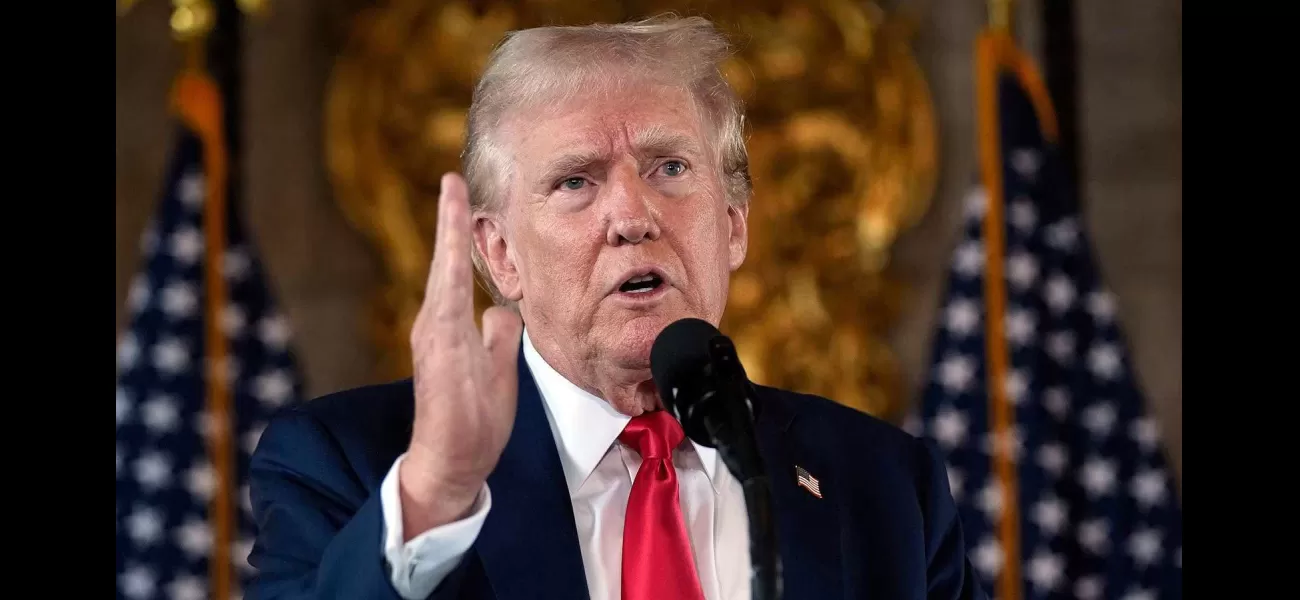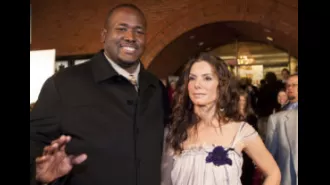New charges brought against Trump for his alleged role in the Capitol riots on January 6.
New changes made after US Supreme Court decision on presidential immunity.
August 27th 2024.

Special counsel Jack Smith has recently filed a revised indictment in the election interference case against former US President Donald Trump. This new indictment has been adjusted to reflect the Supreme Court's ruling on immunity, resulting in a slimming down of the allegations against Trump, who is currently the 2024 presidential nominee.
Despite the changes, the four original charges against the former president still stand. However, the revised indictment has removed certain allegations, such as those related to Trump's attempts to use the Justice Department to push his false claims of election fraud. The language used by prosecutors has also been adjusted to better describe the remaining allegations against Trump's involvement in election subversion schemes.
According to the special counsel's office, the new indictment was presented to a fresh grand jury, one that had not previously heard evidence in this case. This was done in an effort to respect and implement the Supreme Court's instructions and rulings in the case of Trump v United States.
The revised indictment brings the question of Trump's alleged efforts to steal the 2020 election back into the spotlight, just as the 2024 campaign is heating up. Throughout this year, Trump has claimed to be the victim of a conspiracy by the Biden administration to use the justice system against him. However, with the success of Trump's legal team in delaying or dismissing trials and the emergence of new Democratic nominee Vice President Kamala Harris, the focus has shifted away from Trump's legal troubles.
Smith's determination to continue pursuing this case after the Supreme Court's immunity ruling highlights the personal stake that Trump has in winning the upcoming election. Regaining executive authority would allow him to put an end to federal proceedings against him, making this a crucial issue for the former president.
According to a source familiar with the case, Trump's defense team was prepared for a revised indictment to be filed after the Supreme Court's ruling. However, the quick arrival of the superseding indictment came as a surprise. In the new indictment, prosecutors make a point to clarify that Trump did not have any constitutionally assigned duties related to the post-election transition of power. This was done to align with the Supreme Court's ruling, which granted immunity for certain actions that fall within a president's official powers.
The revised indictment also includes multiple references to Trump as a candidate rather than the president, highlighting the distinction between his personal interests and his official duties. This includes descriptions of his alleged co-conspirators as individuals who were not government officials during the alleged conspiracies, but were instead acting in their private capacity. The language has also been modified to specify that a lawsuit filed by Trump's campaign in Georgia was done so in his capacity as a candidate for President, rather than in his name.
The special counsel's office also emphasizes the belief that then-Vice President Mike Pence was acting in a ceremonial role as president of the Senate during the Electoral College certification proceedings on January 6, 2021. This distinction is crucial, as prosecutors argue that Trump's pressure on Pence was outside the scope of his official duties. Additionally, references to Co-Conspirator 4, identified as former Justice Department official Jeffrey Clark, have been removed from the revised indictment.
Trump has entered a plea of not guilty to the charges against him. The ongoing developments in this case can be followed on our WhatsApp channel, where you can stay up-to-date on breaking news, celebrity updates, and sports news without any algorithms or privacy concerns.
Despite the changes, the four original charges against the former president still stand. However, the revised indictment has removed certain allegations, such as those related to Trump's attempts to use the Justice Department to push his false claims of election fraud. The language used by prosecutors has also been adjusted to better describe the remaining allegations against Trump's involvement in election subversion schemes.
According to the special counsel's office, the new indictment was presented to a fresh grand jury, one that had not previously heard evidence in this case. This was done in an effort to respect and implement the Supreme Court's instructions and rulings in the case of Trump v United States.
The revised indictment brings the question of Trump's alleged efforts to steal the 2020 election back into the spotlight, just as the 2024 campaign is heating up. Throughout this year, Trump has claimed to be the victim of a conspiracy by the Biden administration to use the justice system against him. However, with the success of Trump's legal team in delaying or dismissing trials and the emergence of new Democratic nominee Vice President Kamala Harris, the focus has shifted away from Trump's legal troubles.
Smith's determination to continue pursuing this case after the Supreme Court's immunity ruling highlights the personal stake that Trump has in winning the upcoming election. Regaining executive authority would allow him to put an end to federal proceedings against him, making this a crucial issue for the former president.
According to a source familiar with the case, Trump's defense team was prepared for a revised indictment to be filed after the Supreme Court's ruling. However, the quick arrival of the superseding indictment came as a surprise. In the new indictment, prosecutors make a point to clarify that Trump did not have any constitutionally assigned duties related to the post-election transition of power. This was done to align with the Supreme Court's ruling, which granted immunity for certain actions that fall within a president's official powers.
The revised indictment also includes multiple references to Trump as a candidate rather than the president, highlighting the distinction between his personal interests and his official duties. This includes descriptions of his alleged co-conspirators as individuals who were not government officials during the alleged conspiracies, but were instead acting in their private capacity. The language has also been modified to specify that a lawsuit filed by Trump's campaign in Georgia was done so in his capacity as a candidate for President, rather than in his name.
The special counsel's office also emphasizes the belief that then-Vice President Mike Pence was acting in a ceremonial role as president of the Senate during the Electoral College certification proceedings on January 6, 2021. This distinction is crucial, as prosecutors argue that Trump's pressure on Pence was outside the scope of his official duties. Additionally, references to Co-Conspirator 4, identified as former Justice Department official Jeffrey Clark, have been removed from the revised indictment.
Trump has entered a plea of not guilty to the charges against him. The ongoing developments in this case can be followed on our WhatsApp channel, where you can stay up-to-date on breaking news, celebrity updates, and sports news without any algorithms or privacy concerns.
[This article has been trending online recently and has been generated with AI. Your feed is customized.]
[Generative AI is experimental.]
0
0
Submit Comment





